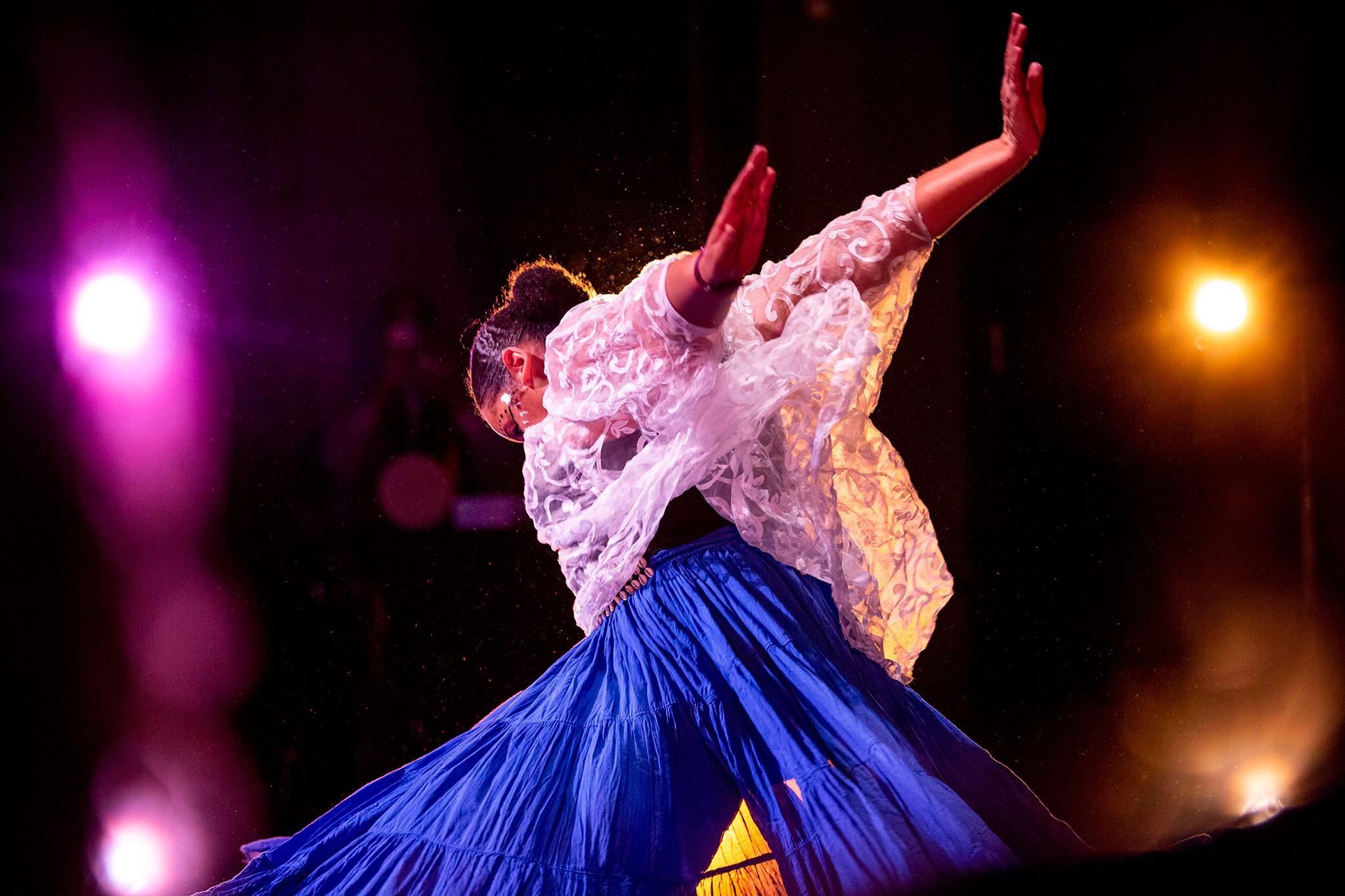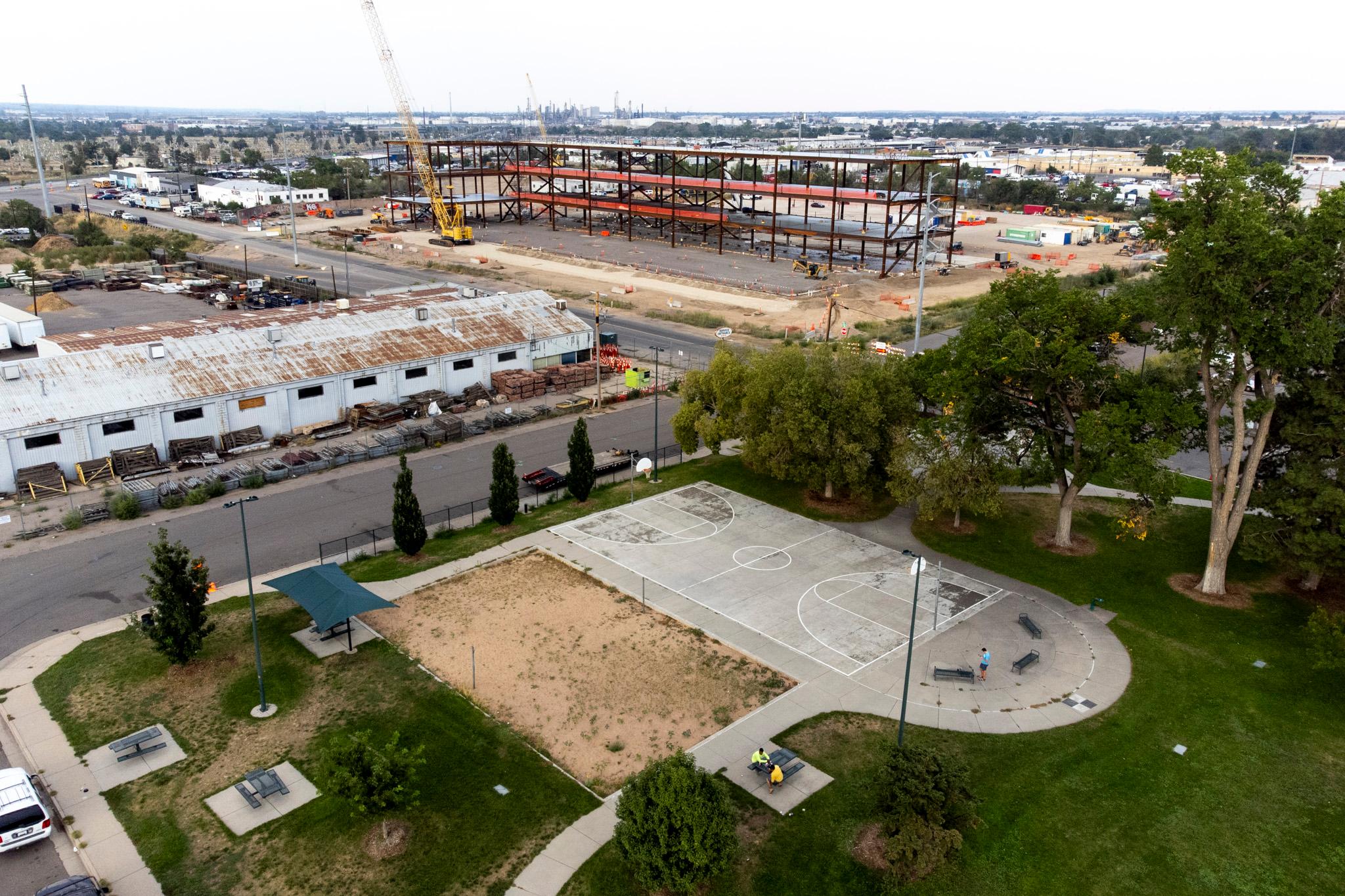The stalwarts of Denver's annual Kwanzaa celebration were so glad to be back together in person this year. COVID pushed the gathering into virtual territory in 2020. This year, face masks could not contain the emotions inside Cleo Parker Robinson Dance's theater.
"We are empowered as individuals to create space that we need and we want for ourselves," Kameelah Sims-Traylor told the crowd on Sunday evening. "We're doing it right now. We're doing it right here."
Sims-Traylor, who's finishing up a law degree at the University of California, Hastings, grew up in Denver but hasn't been able to travel home as much as she'd like, thanks to the pandemic. Though a lot of things, like classes, can be done virtually, this was one moment she was determined to return to in person.
"I was very moved when I came in," she said after the show. "I came in hot!"
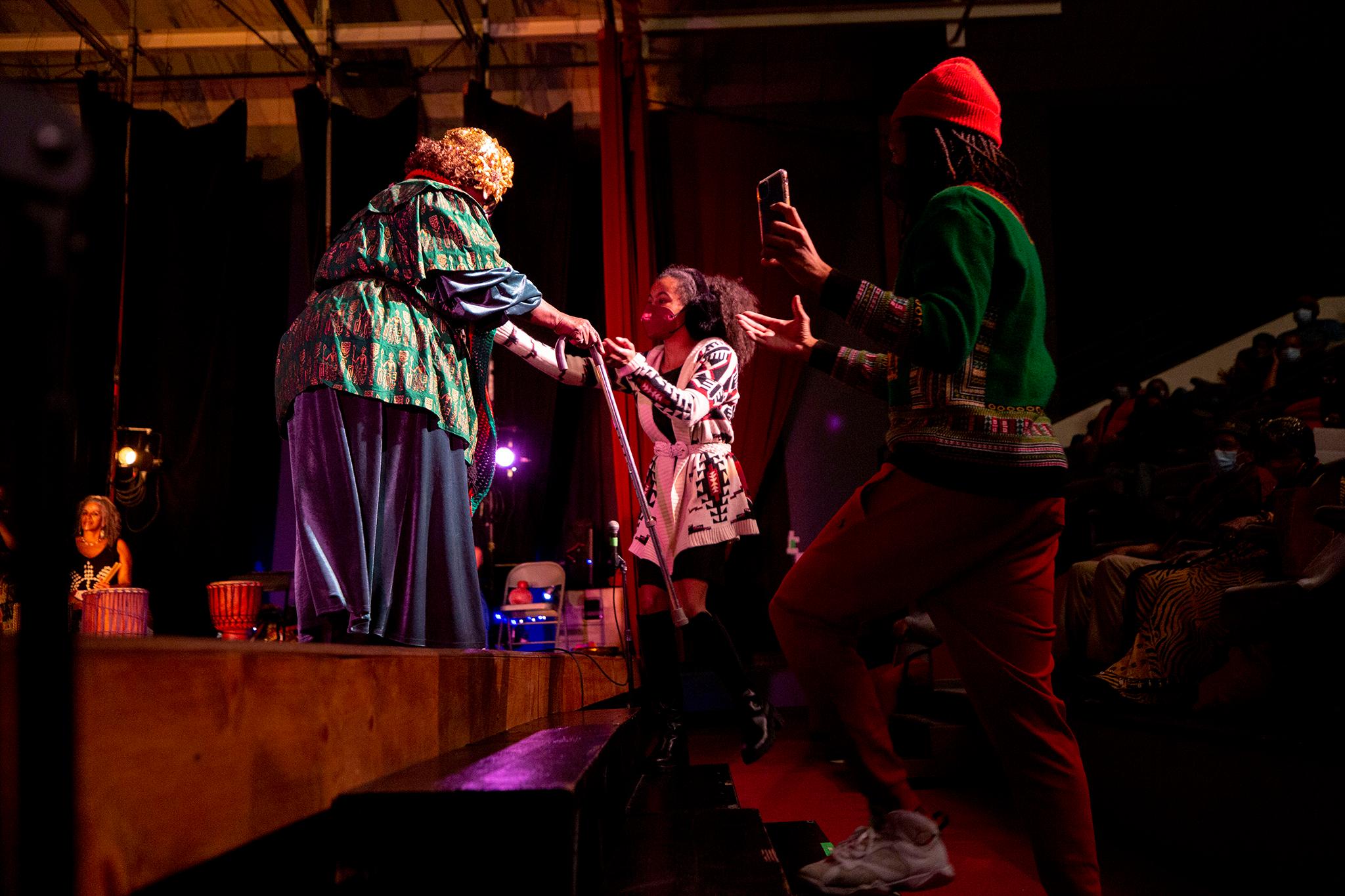
Sims-Traylor is driven by social justice. It's what's motivated her pursuit of law and, she hopes, an eventual career as an international investigative journalist. Her professional goals revolve around a desire to boost community values and bring society away from the consumerism that she sees destroying the planet and disenfranchising people. But one doesn't need a law degree to enact positive change, she said. This theater, filled with people committed to each other, is one place where this work has long been underway.
"This is absolutely amplifying the resilience and the power of people, and it allows us to come together and see that we are strong together and we're strong apart," she told us. "We're strong as individuals and we're strong as a collective."
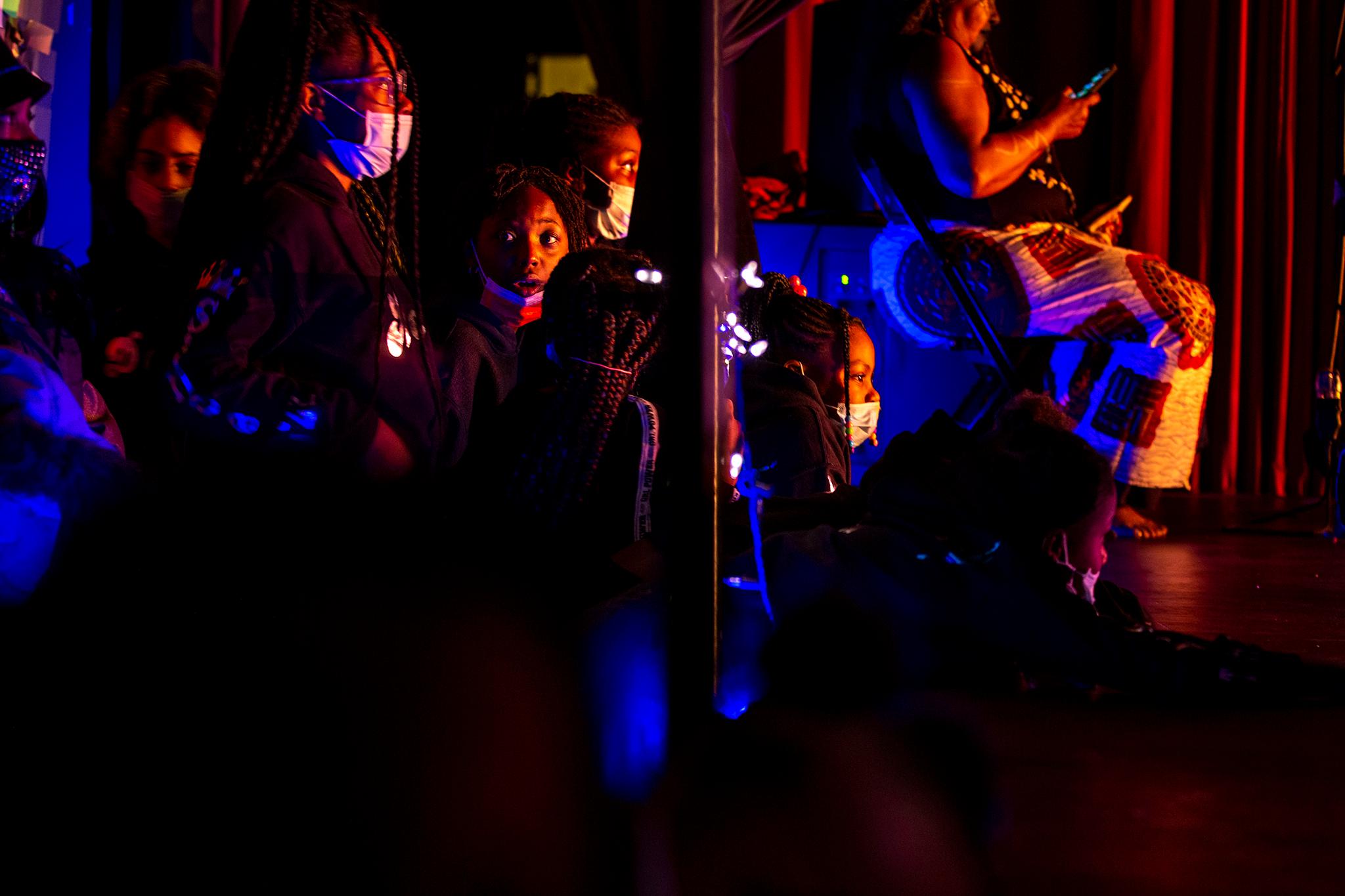
Kwanzaa was born out of struggle more than 50 years ago. The people here said its message is as relevant today as it was in the 1960s.
Brother Jeff Fard, a major figure in Denver's Black community and Sims-Traylor's uncle, was quick to point out that this holiday is not a religious one. On stage, he reminded visitors of its foundation.
Kwanzaa, he told them, was a product of the Watts Rebellion that broke out in Los Angeles in 1965, protests generated from a traffic stop that quickly evolved into mass unrest against police brutality. In 1966, California State University, Long Beach professor Maulana Karenga created the holiday as a pathway to communal healing, Fard told the crowd. It was an effort to build unity in a moment of societal fracturing.
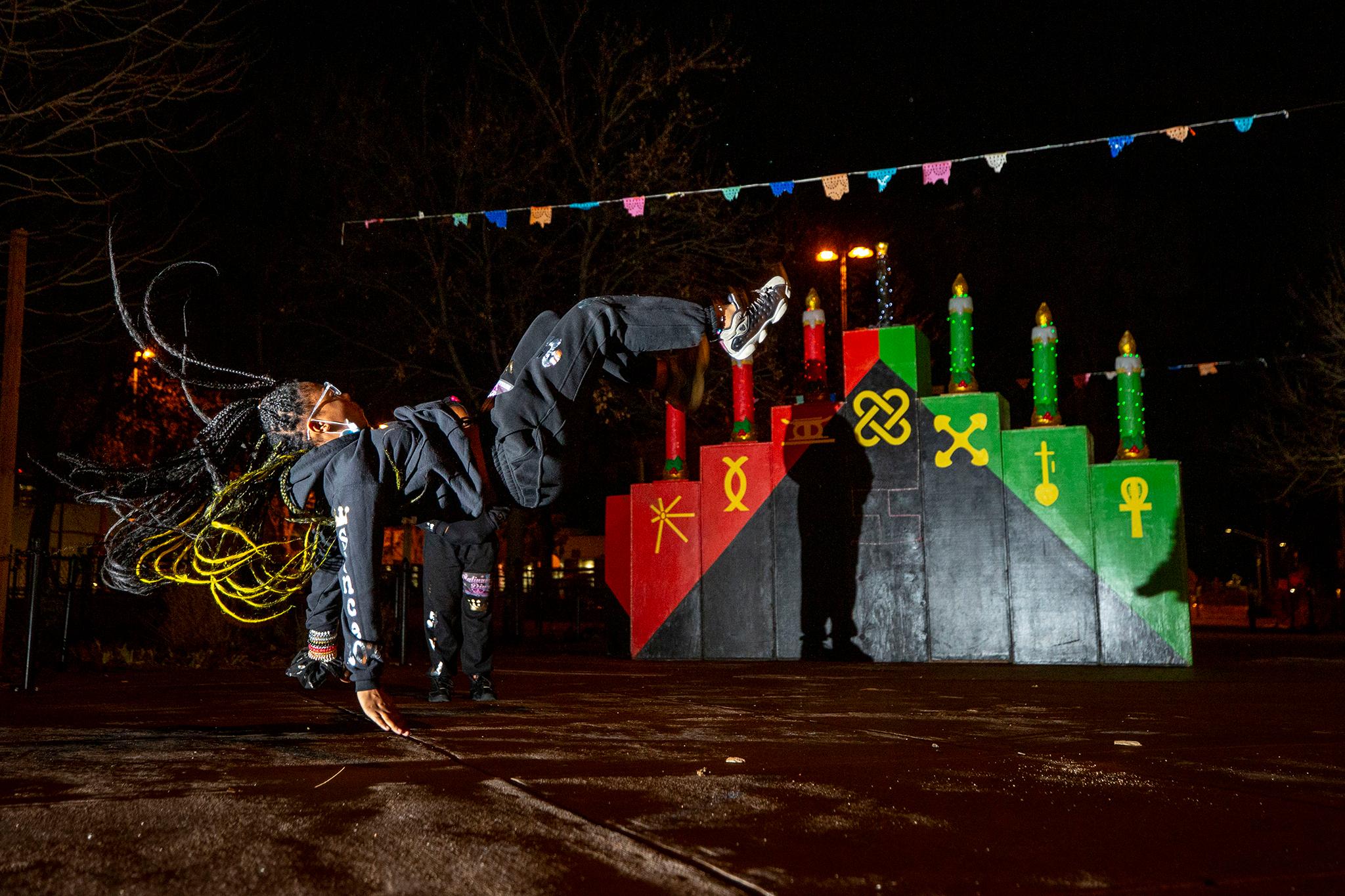
Each of Kwanzaa's seven nights is anchored by a single value. Night seven, "Imani," is about faith in the community. Night six, "Kuumba," is dedicated to creativity and work to better that community. Night five, "Nia," is about finding purpose. Night four, "Ujamaa," centers around "cooperative economics," taking individualism out of wealth building. Night three, "Ujima" is about collective responsibility. Night two, "Kujichagulia," focuses on self-determination. And the first night, which Fard presided over on Sunday, is "Umoja," or unity.
These ideas, Fard told us, are universal principles. Any person of any creed or race should feel welcome in Kwanzaa celebration. On one hand, people who don't have a connection to the holiday are welcomed to participate like they would in Denver's Dragon Boat Festival or Cinco De Mayo. But Fard said these ideas could go much further than a cultural immersion.
"In 2021, this country is more divided than its ever been. This country needs unity right now. This country needs to have a sense of identity and self-determination and cooperative work and responsibility. All of these principles could heal the political divide, the social divide," he told us. "Kwanzaa, those principles, are more relevant today than they were in 1966."
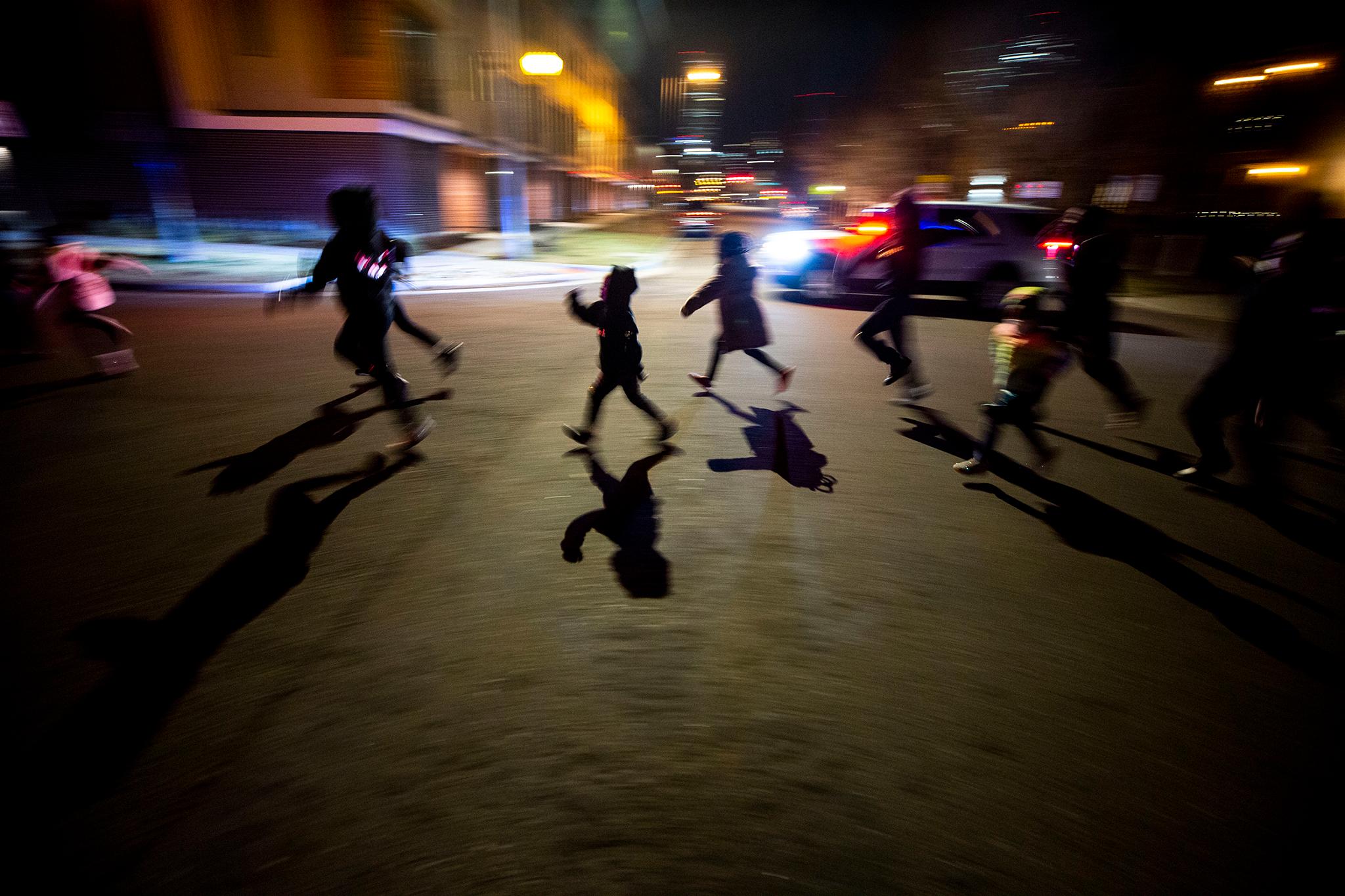
Beyond these universal truths, Sunday night was a moment for Denver's Black community to keep their history alive.
Fard evoked America's original sin, slavery, and how it set the stage for the country we live in today.
"Water is a friend to everything living, and we came over a long way. They say six million of our ancestors are buried at the bottom of the Atlantic, the ones that didn't make it," he said, as he ceremoniously poured droplets into a plant onstage. "We remember them and we say, 'Ashé.'"
Ashé, for the uninitiated, means "be with us" or "amen."
The struggles America's Black residents have dealt with since many of their ancestors were forcibly brought here were present throughout the evening.
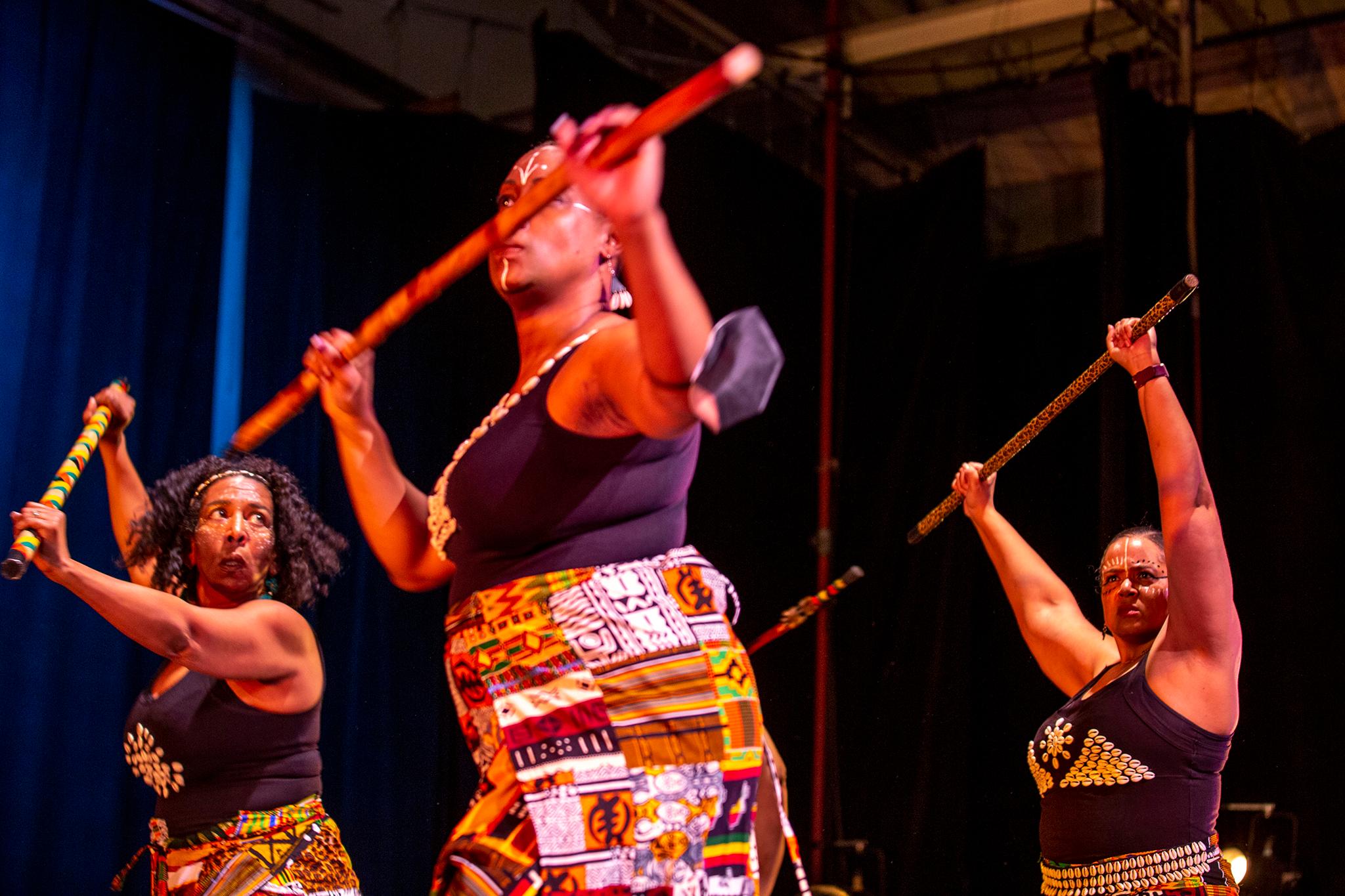
But the celebration was also a moment to recognize community members who have long stood for unity and self determination. Sims-Traylor placed knit scarves on the shoulders of people newly inducted into the "Circle of Wisdom," the elders of her community.
And Yasmeen Nkrumah-Elie, who was onstage with the Intergenerational Women's African Drum and Dance Ensemble, dedicated a warrior dance to someone close to her heart.
"We dedicate this dance to one of our newly inducted ancestors. Dr. Sharon Bailey," she told the crowd, fighting back tears. "Dr. Bailey was one of our quiet storm freedom fighters. She fought and struggled on our behalf, in the halls of education, on the Denver School Board. In the Colorado Department of Education and in Denver Public Schools."
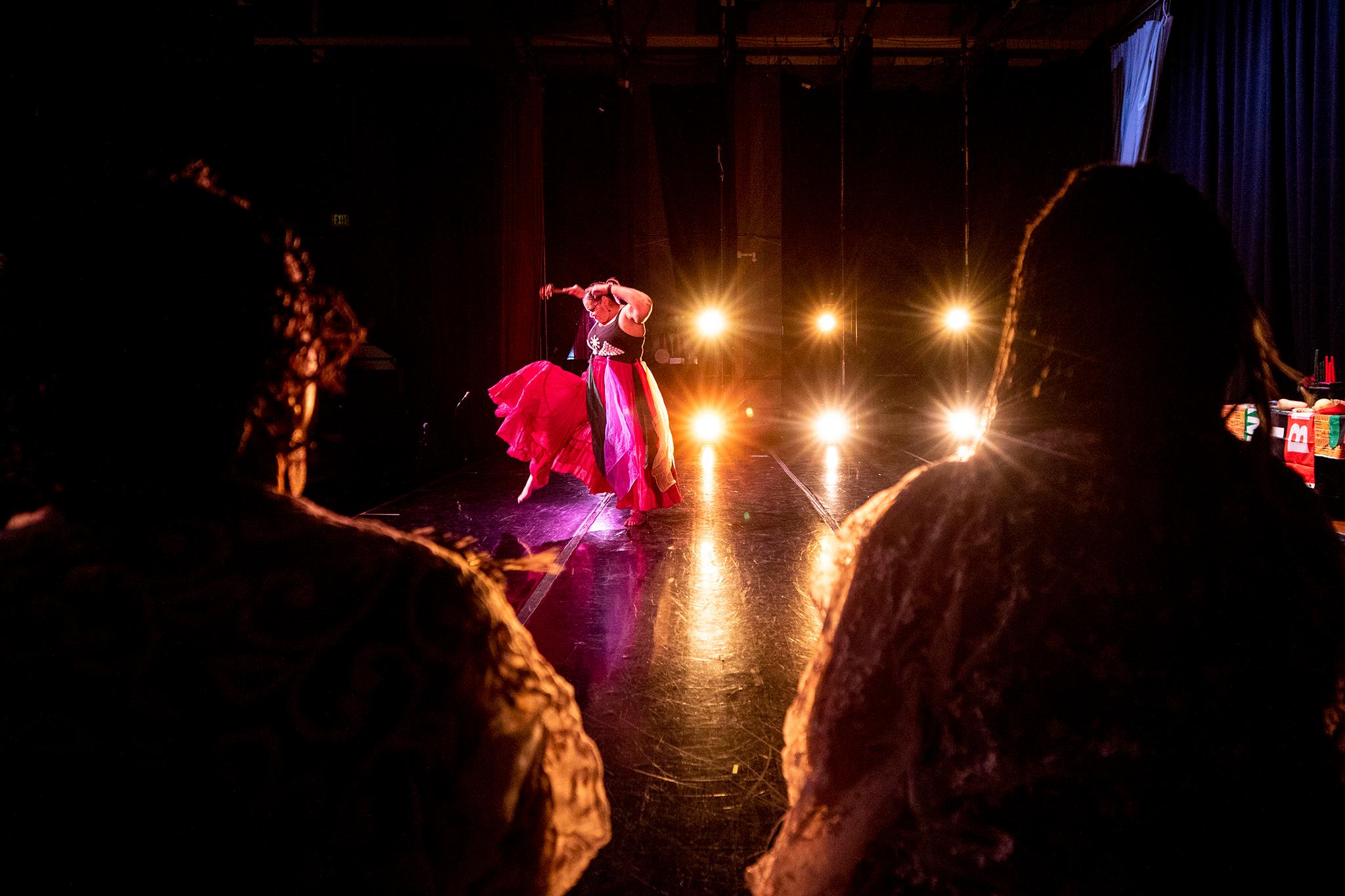
Bailey, who died this month, wrote a scathing report on the racist infrastructure within Denver's school system that held back both students and teachers of color. She was known as the district's "moral compass" and, in this room, was a symbol of the community's power.
As she spoke to the room filled with children and elders, Sims-Traylor reminded everyone they have the ability to harness that kind of influence.
"You can really create the environment that you want to see," she said. "I really just want to be able to empower people and allow them to recognize that power is within and it is always there. We're resilient. We know that. But let others know, too."
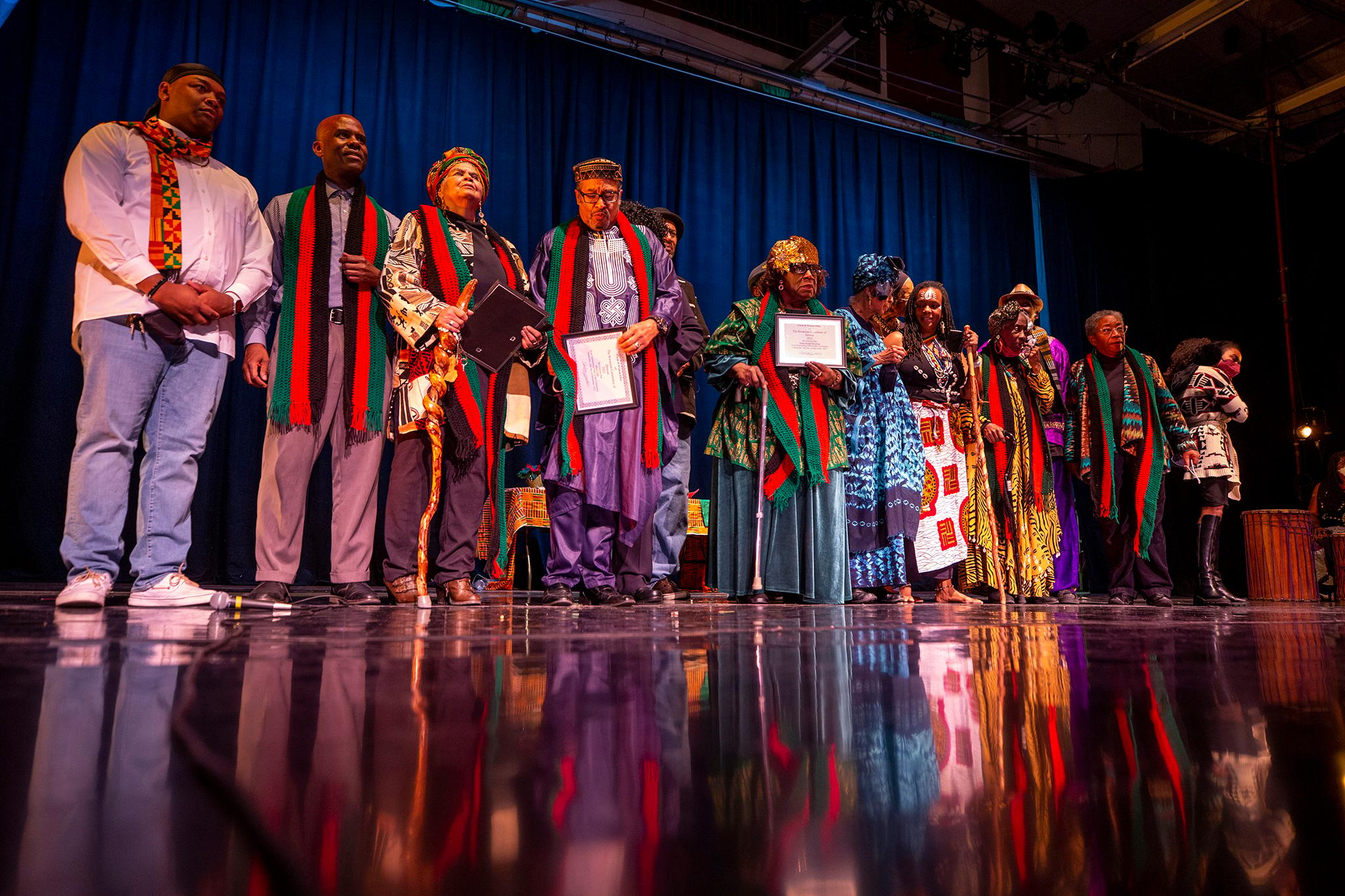
Correction: "Ashé" was originally misspelled.

